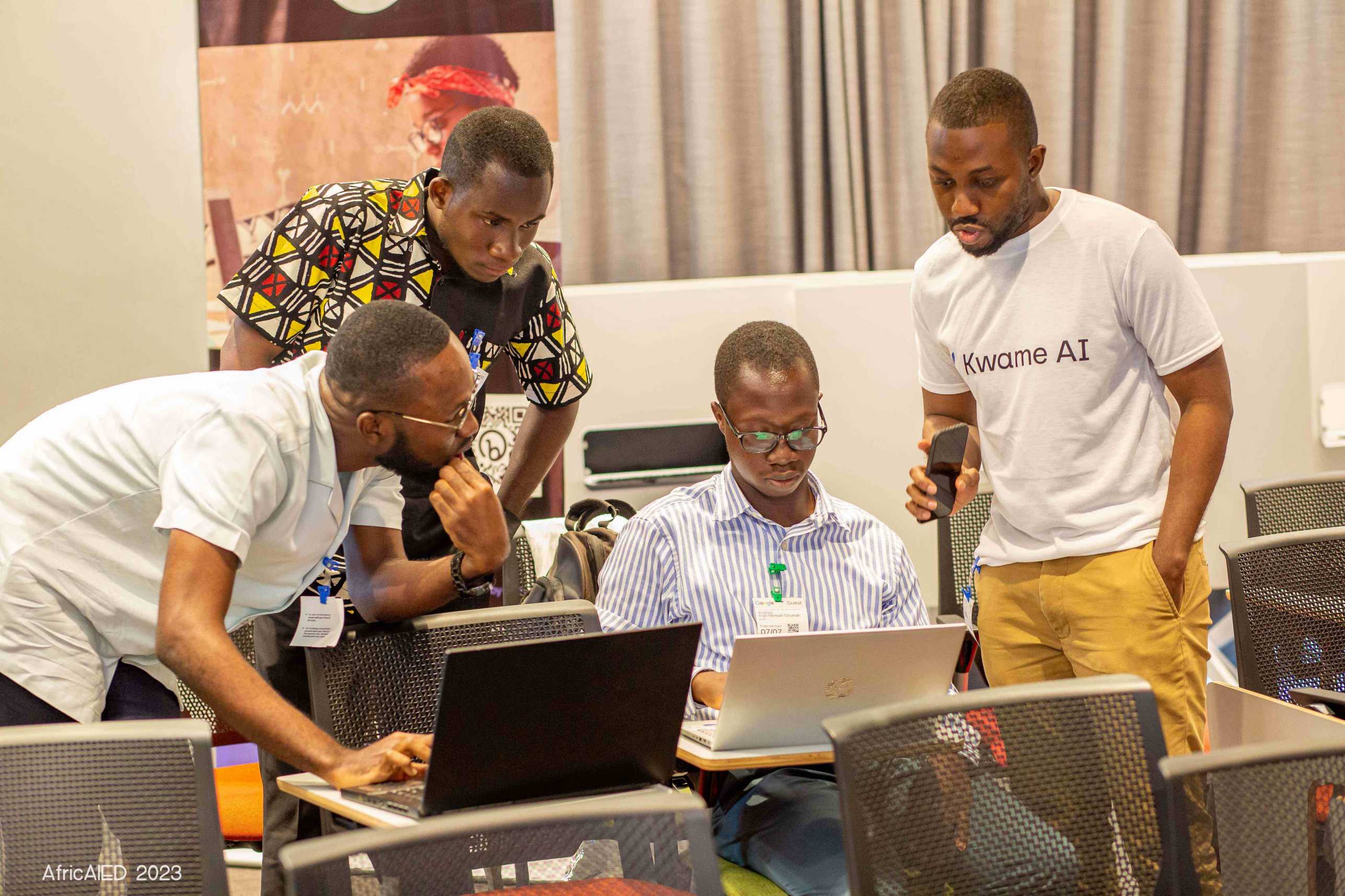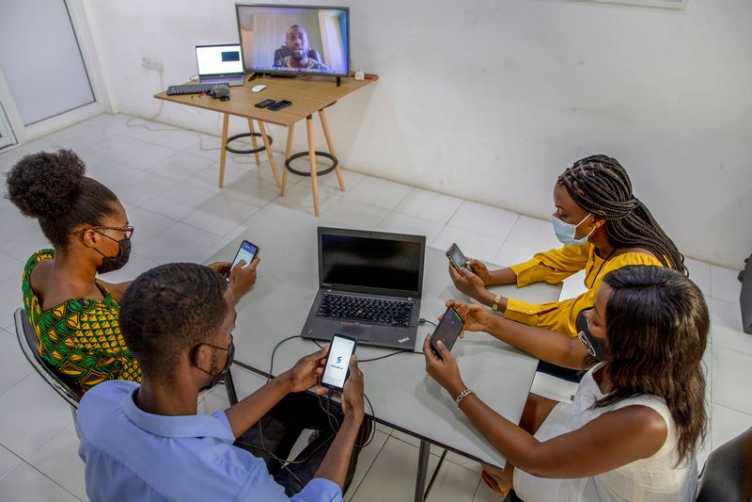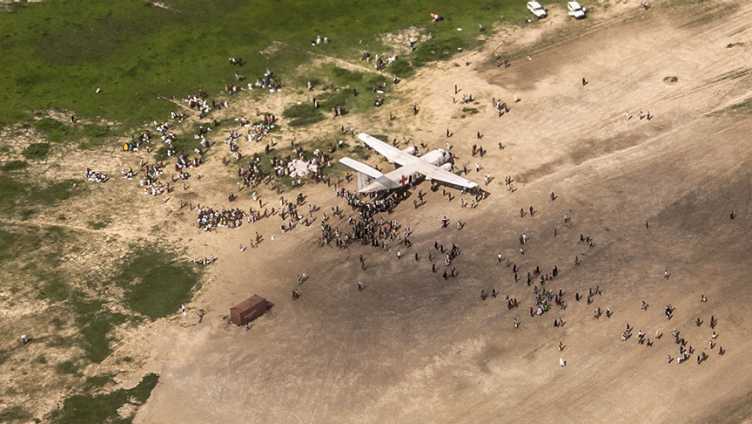AI for Global Development
ETH for Development (ETH4D) has been supporting the following projects in the field of AI for Global Development.

Personal Whatsapp AI Teaching Assistant

The COVID-19 pandemic exacerbated the existing poor educational experiences of millions of students in Africa who were dealing with challenges such as limited or no access to computers, the Internet, and qualified teachers. In 2019, the average student-teacher ratio at the primary education level in Sub-Saharan Africa was 38:1 which is higher compared to 13.5:1 in Europe. The lack of enough teachers makes it challenging for students to have adequate learning support such as educational question-answering and formative assessments to gauge their learning progress.
In prior work, we developed Kwame AI, an AI teaching assistant delivered via a web app to enable African students to get instant answers to their science questions. In this work, we plan to develop, deploy, and evaluate a WhatsApp-based AI Teaching Assistant for personalized question-answering and assessment. We plan to extend Kwame AI to (1) enable test-taking and (2) be more accessible via WhatsApp. Next, we plan to deploy it in a pilot study in Ghana in collaboration with teachers and evaluate its helpfulness, engagement, and usability. This work has the potential to enable the provision of scalable, high-quality education to millions of people across the African continent.
Focus Country: Ghana
Contact: Dr. George Boateng
Partners: external page Kwame AI
ETH4D Grant: ETH4D Pilot Grant
AI for Forecasting and Demand Planning
The use of Artificial Intelligence (AI) in commercial supply chains has helped companies like Amazon fine-tune their operations and increase profits. The potential of these new technologies has not, however, been fully explored in humanitarian organizations, where resources are scarce, and lives at stake.
This project strives to fill that gap. It investigates the potential of machine-learning to improve how ICRC forecasts the medical supply it delivers to health facilities in war zones. The researchers will analyze several years of order data from its health programs, to identify patterns of historical consumption. They will then apply AI to build a predictive model to improve the accuracy of future forecasts. The ETH research team will apply experience gained in a previous HAC project, which measurably improved the planning of medical supply.
Focus Country: Global
Contact: Prof. Stephan Wagner
Partners: Rubén Naval Artal (external page ICRC)
ETH4D Grant: Humanitarian Action Challenges Grant
Mapping Vulnerable Populations with AI
Effective planning and response of humanitarian actions depend on knowledge of the local situation, and in particular of the spatial distribution of populations. At a coarse scale it is fairly simple to locate human settlements, however, mapping population at a fine scale (neighbourhood to buildings) is a much harder challenge, especially in countries in the Global South, because of incomplete or outdated census data. While global building footprint products have been created in the last years, they are less accurate in the Global South, especially outside the main cities. Creating a spatially resolved and information-augmented population database would greatly help in planning humanitarian actions.
The project aims at estimating local population size and density, as well as related information such as settlement type and population changes, from satellite images and social media posts, and integrate them into detailed, spatially resolved population maps to support humanitarian action. It relies on data sources that are openly and globally accessible, to ensure that the approaches developed are scalable, and applicable on a broad scale not limited to a single city, country, or year. To integrate multiple heterogenous data sources, the project is based on a machine learning approach. Algorithms are designed that extract necessary information from each source before combining it into a population map. The approach will be tested in several cities in central Africa and beyond (Gumbo, East Juba in South Sudan; Moloko, Cameroon; Bunia, DRC and Tal Afar, Iraq), as well as in less densely populated nearby areas. In a second phase, the project may expand to damage assessment in, for instance, Iraq or Syria.
In sum, the research spans a wide number of disciplines, including satellite image analysis, artificial intelligence and automated interpretation of social media data.
Focus Region: Africa
Contact: Prof. Konrad Schindler
Partners: external page Prof. Devis Tuia, Thao Ton That Whelan (external page ICRC), external page Ferda Ofli (Qatar Computing Research Institute)
ETH4D Grant: Humanitarian Action Challenges Grant
Remote Monitoring of Armed Conflicts

This project combines deep learning with open-source satellite imagery to support the ICRC in addressing violence in armed conflicts. Satellite images offer a non-intrusive form of observing surface changes related to conflict events, such as the impact of air strikes, burning villages, or the movement of heavy weaponry. The use of this remote sensing technology complements on-the-ground activities and is particularly valuable to gather information about conflict events in remote areas or areas with high security risks.
The ICRC already uses satellite images on an on-demand basis, manually assessing high resolution images to verify and document violations of humanitarian law. However, assessing satellite images manually is very labour-intensive and requires high-resolution images that are expensive to purchase, especially if entire countries need to be monitored. This makes it impossible to screen vast conflict areas on a regular basis with the current approach. To address this challenge, our project will develop an automated monitoring tool that combines deep learning with open-source satellite images of ESA’s Sentinel-1 and Sentinel-2 satellite constellations, allowing the ICRC to monitor entire conflict areas in near-real time.
Focus Region: Global
Contact: Prof. Konrad Schindler, Prof. Jan Dirk Wegner, Dr. Valerie Sticher
Partners: Dr. Thao Ton-That Whelan (external page ICRC), external page Jonathan Drake (American Association for the Advancement of Science), Martin Wählisch (external page UNDPPA Innovation Cell)
ETH4D Grant: Humanitarian Action Challenges Grant
Humanitarian Crisis Detection with Nightlight
Timely identification of emerging crises is crucial for effective humanitarian response. While traditional monitoring methods remain essential, they can sometimes prove inadequate, particularly when humanitarian emergencies arise in remote or inaccessible regions. Our project addresses this challenge by exploring satellite nighttime light (NTL) data as a proxy for the identification of crises. Available daily, at no cost, and in near-real time, NTL data offers unique insights into changes in livelihoods and human activity. By combining deep learning techniques with qualitative research methods, we are developing a tool that proactively detects unusual changes in NTL, with the aim of enabling the early detection of humanitarian crises in conflict contexts relevant to the ICRC.
Focus Region: Global
Contact: Dr. Corinne Bara (Center for Security Studies)
Partners: external page Prof. Devis Tuia (Environmental Computational Science and Earth Observation Laboratory), Dr. Thao Ton-That Whelan (external page ICRC)
ETH4D Grant: Humanitarian Action Challenges Grant